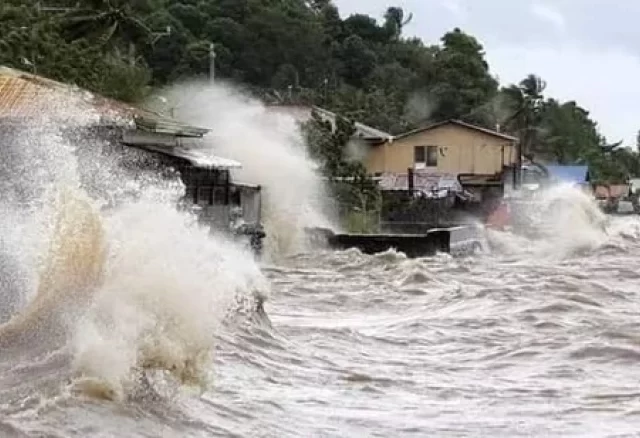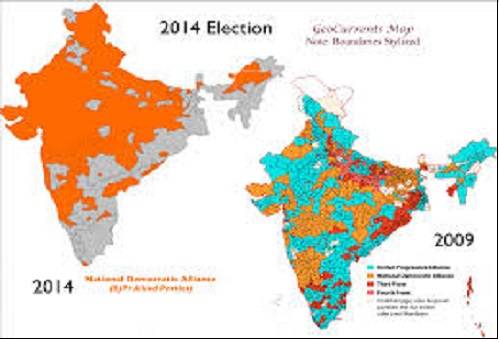
Rescuers in Myanmar and Bangladesh are working to evacuate people from flooded coastal areas battered by Cyclone Mocha.
In Myanmar, they saved about 1,000 people trapped by seawater 3.6 metres deep.
At least five deaths have been reported in Myanmar, but the true impact was not yet clear in one of Asia’s least developed countries.
Strong winds injured more than 700 of about 20,000 people who were sheltering in sturdier buildings on the highlands of Sittwe township such as monasteries, pagodas and schools, according to a leader of the Rakhine Youths Philanthropic Association in Sittwe. He asked not to be named due to fear of reprisals from the authorities in the military-run country.

Seawater raced into more than 10 low-lying wards near the shore as Cyclone Mocha made landfall in Rakhine state Sunday afternoon, he said. Residents moved to roofs and higher floors, while the wind and storm surge prevented immediate rescue.
“After 4 p.m. yesterday, the storm weakened a bit, but the water did not fall back. Most of them sat on the roof and at the high places of their houses the whole night. The wind blew all night,” the rescue group leader said.
Water was still about 1.5 metres (5 feet) high in flooded areas Monday morning, but rescues were being made as the wind calmed and the sun rose in the sky. He asked civil society organisations and authorities to send aid and help evacuate residents.
Several injuries were reported in neighbouring Bangladesh, which was spared the predicted direct hit.
Mocha made landfall near Sittwe township with winds blowing up to 209 kilometres per hour, Myanmar’s Meteorological Department said. By Monday morning, it was downgraded from its severe status and was steadily weakening over land, according to the India Meteorological Department.
The State Administration Council issued disaster declarations for 17 townships in Rakhine state.
High winds crumpled cell phone towers, but in videos collected by local media before communications were lost, deep water raced through streets and wind blew off roofs.
Myanmar’s military information office said the storm had damaged houses and electrical transformers in Sittwe, Kyaukpyu, and Gwa townships. It said roofs were torn off buildings on the Coco Islands, about 425 kilometres southwest of the country’s largest city, Yangon.
Volunteers previously said shelters in Sittwe did not have enough food after more people arrived there seeking help.
Mocha largely spared the Bangladeshi city of Cox’s Bazar, which initially had been in the storm’s predicted path. Authorities had evacuated hundreds of thousands of people before the cyclone veered east.
About a dozen people were injured on Saint Martin’s Island, while some 300 homes were either destroyed or damaged, leading Bengali-language daily Prothom Alo reported.
UN agencies and aid workers in Bangladesh had prerequistioned tons of dry food and dozens of ambulances in the refugee camps that house more than one million Rohingya Muslims who fled persecution in Myanmar.

In May 2008, Cyclone Nargis hit Myanmar with a storm surge that devastated populated areas around the Irrawaddy River delta. At least 138,000 people died and tens of thousands of homes and other buildings were washed away.
Roxy Mathew Koll, a climate scientist at the Indian Institute of Tropical Meteorology in Pune city, said cyclones in the Bay of Bengal are becoming more intense more quickly, in part because of climate change.
Climate scientists say cyclones can now retain their energy for many days. Cyclone Amphan in eastern India in 2020 continued to travel over land as a strong cyclone and caused extensive devastation.
“As long as oceans are warm and winds are favourable, cyclones will retain their intensity for a longer period,” Koll said.
Tropical cyclones, which are called hurricanes or typhoons in other regions, are among the world’s most devastating natural disasters when they hit densely populated coastal areas.
 The Global Calcuttan Magazine
The Global Calcuttan Magazine 







